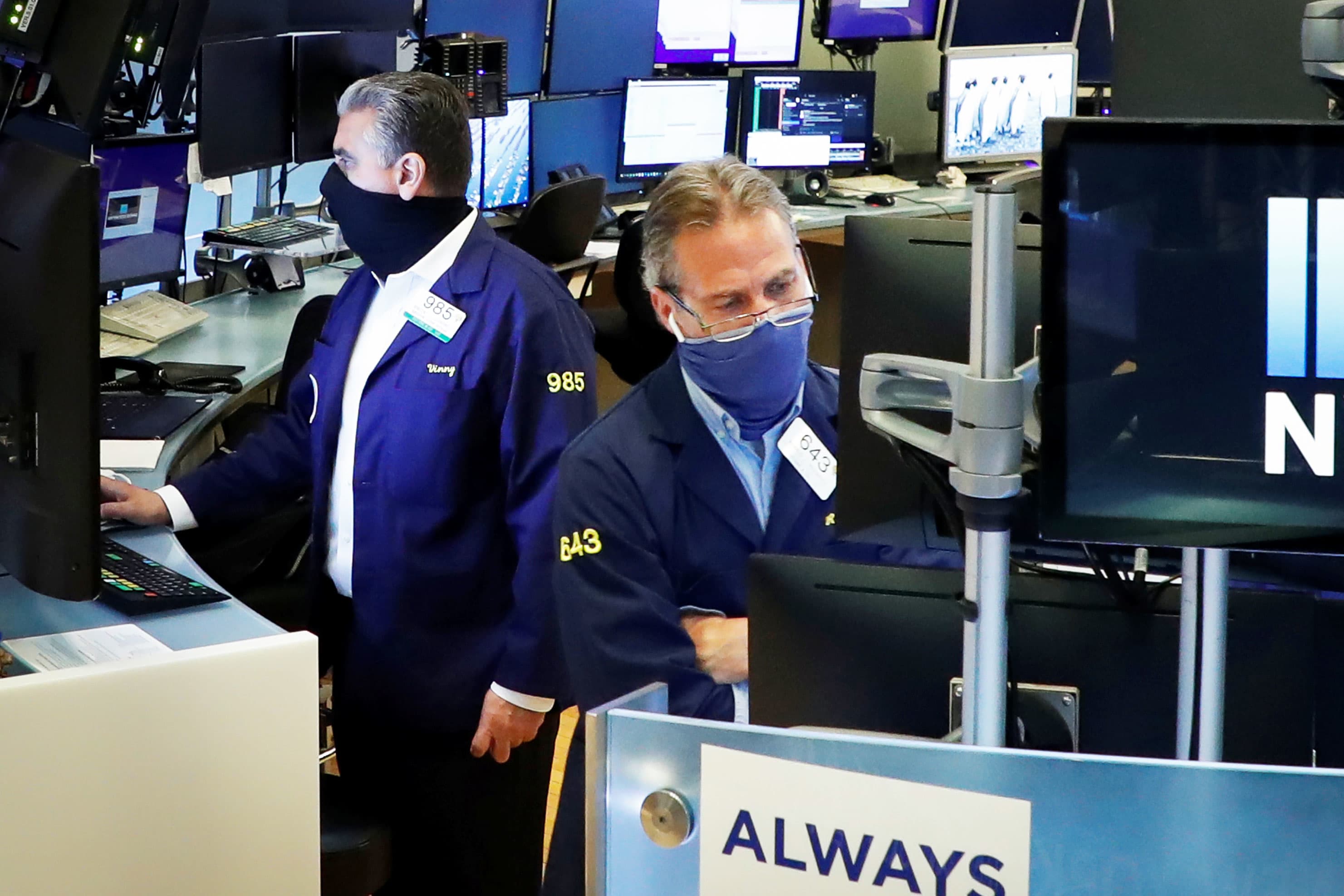What’s next for markets? With the election over, some old themes will be re-emerging, regardless of who will be president.
The rally is due to better earnings visibility
On one issue, all traders agree: the market rally is largely due to the unlikelihood of higher corporate and individual taxes next year.
“The Senate numbers from the 2020 election indicate that higher corporate taxes are unlikely, giving us and others more conviction in 2021 EPS estimates,” Tobias Levkovich from Citigroup said in a note to clients. Like many, Levkovich estimated that higher taxes could shave at least 5% off earnings in 2021, but “that possibility has dissipated,” Levkovich said.
Back to fundamentals
“The good news is the uncertainty surrounding a very contentious election should soon be behind us, and investors can focus on the macro influences that ultimately drive direction: inflation, interest rates, money availability, and the prospects for domestic and global growth,” Tony Dwyer from Cannacord Genuity wrote in a note to clients.
In discussions with traders, several “old themes” came up over and over: the extent of fiscal and monetary stimulus, China policy, and trade and the dollar. One important trend either president will be facing: the prospects for much bigger government.
Fiscal and monetary stimulus: how much?
Traders agreed that the Federal Reserve would remain accomodative and that some kind of fiscal stimulus was coming from Congress, but there’s no agreement on the timing or size of the deal.
“I think it’s certain that the Fed is going to continue to be extraordinarily easy for a long time to come…and I also think that it’s certain that we’re going to get fiscal stimulus.” Strategas Research Partners Chairman Jason Trennert told CNBC.
Liz Young, BNY Mellon Investment Director of Market Strategy, said stimulus would now dominate the markets. “Both parties want stimulus,” she told CNBC. ”That’s going to drive a rally that’s going to drive positivity and the sequence of events matter so if you get a fiscal package and a vaccine around at the same two or three-month period that’s huge upside in the stock market.”
The good news: Senate Majority Leader Mitch McConnell said a stimulus bill would be the Senate’s top priority before year end, and indicated aid to states — a major stumbling point in prior negotiations — might be included.
Everyone will be tough on China
No matter who wins, the stance toward China has hardened. ”I think we pick a fight with China no matter what,” Peter Tchir from Academy Securities told me.
Not everyone is convinced. ”The world expects Biden to be easier on China, I hope that is not true,” Kyle Bass said on CNBC, noting that the dollar weakened against the Chinese currency when Biden appeared to be in the lead.
Protecting vital U.S. industries will be a theme under either administration: ”I think there is going to be huge pressure to bring medical manufacturing back home,” Peter Tchir told me. “Why are we producing essential medicines in China?”
Trade and the dollar
Indeed, many traders agreed that “economic nationalism” — bringing supply chains back to the United States — would be a theme under the Biden administration as well.
“Biden’s Made in America is the import substitution strategy that is very close to Trump,” Marc Chandler from Bannockburn Global Forex told me. The differences between them, he says, “Is more about style than substance.”
Trade agreements are a different matter. Noting that that the U.S. is formally leaving the Paris Accord, Chandler said Biden will seek to rejoin that agreement.
As for the dollar, both the import substitution strategy and the monetary and fiscal policy mix lends itself to a weaker dollar.
“We will have a twin deficit: we will have a budget deficit, and a large trade deficit,” Chandler told me. ”U.S. interest rates should be expected to rise to attract investors, but rates can’t rise much, so the alternative is to have the dollar lower. As the U.S. borrows more money, the dollar will fall.” He too pointed to the strength of the Chinese yuan against the dollar.
Bigger government, no matter who is in the White House?
No matter who wins, many feel the 2020s “will be characterized by bigger government,” Bank of America said in a recent note to clients, citing among other things, the wider acceptance of Modern Monetary Theory (MMT) that proposes governments should not worry about deficits and should print money unless it becomes inflationary.
David Kelly from JP Morgan agrees: “In today’s environment of near-zero or even negative interest rates and massive central-bank purchases of government securities, we are witnessing a move in the direction of MMT.”
Others cite the growth of Environmental, Social & Governance (ESG) investing, which implies investors pushing for more social changes and increased government regulations.
For the moment, a Goldilocks market
For the moment, these broad policy questions are being put aside as traders celebrate the potential for a perfect scenario: a new President with a check on his ability to raise taxes and impose more regulation.
“We are going to have a much better economy next year than a lot of people realize, regardless of who is in power,” Tchir told me. “We are really going to get the stimulus that goes beyond the band-aid, with big infrastructure, and attempts to repatriate jobs from abroad.”
Subscribe to CNBC PRO for exclusive insights and analysis, and live business day programming from around the world.
